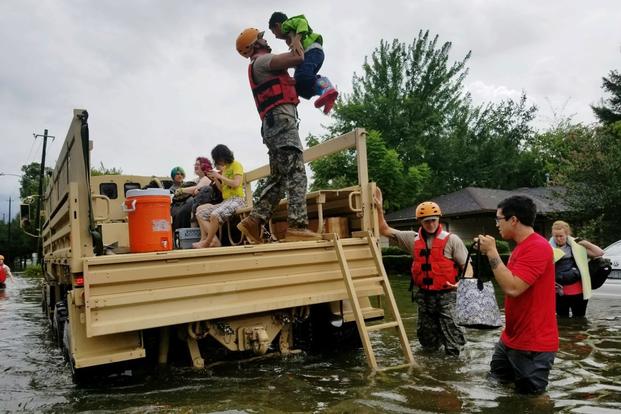After the spate of hurricane damage in recent years, many people have questions about flood insurance -- and there's a lot of misinformation out there.
Here are some things to consider when you are thinking about flood insurance.
My Homeowner's Insurance Covers Flood Damage
To the best of my knowledge, there isn't a homeowner's policy out there that covers flood damage. Flood coverage is a separate policy.
"You may be able to buy the coverage (a separate policy) through your insurance company or another company that has an arrangement with the National Flood Insurance Program. Some private companies offer coverage outside the NFIP and you may need to go that route if the coverage offered through the government program is not adequate or the price is not competitive," said JJ Montanaro, a financial expert with USAA.
My Renter's Insurance Covers Flood Damage
It might. Some renter's insurance policies, like those offered via USAA, cover flood damage to your possessions in a flooded property.
I Don't Need To Buy Flood Insurance Because My Mortgage Company Doesn't Require It
Many people (perhaps most people) should have flood insurance, even if it isn't required by your mortgage company. It's sort of like your auto insurance -- there is minimum coverage, and then there is the coverage that you actually should have, which is probably more than the minimum.
If you can't afford to rebuild your property if there is a flood, you should very seriously consider flood insurance.
I'll Just Wait Until There's Going To Be A Flood To Buy Insurance
In most cases, there is a 30-day waiting period before the policy takes effect. Exceptions include when the floodplain maps are revised or modified, or "in connection with the making, increasing, extension, or renewal of a loan." (From the FEMA.gov website.)
Flood Insurance Is Too Expensive
Believe it or not, most people are paying artificially low flood insurance premiums for the risk being covered. A couple of different rules mean that premiums stay low: caps on increases, a cap on the "full risk" premiums, and rates based on outdated or incorrect maps.
"According to the feds, the average premium is about $650 per year. Compare that figure to the potential losses stemming from flood damage and you have a case study on insurance and risk management," Montanaro said.
It's Too Late To Buy Flood Insurance, So I Won't Bother
If you need flood insurance today, because a storm is possibly headed your way, you needed flood insurance yesterday and you will need it tomorrow. Your overall risk doesn't change just because a storm is brewing. Use this current threat to motivate you to buy the coverage that you need.
My House Will Never Flood
Well, I guess that depends on your definition of flood. The definition used by most insurers, and the National Flood Insurance Program, is:
"A flood is a general and temporary condition where two or more acres of normally dry land or two or more properties are inundated by water or mudflow."
It doesn't matter where the water came from. My mom's house flooded when the local storm drain became clogged during a big storm.
Flood insurance is an important part of your overall disaster management plan. If you choose not to get it, think carefully about how you'll recover in case the water comes.
Don't Wait Until Theft or Disaster Strikes
Be proactive and protect your investment. For more information, visit the Military.com Insurance Center.










